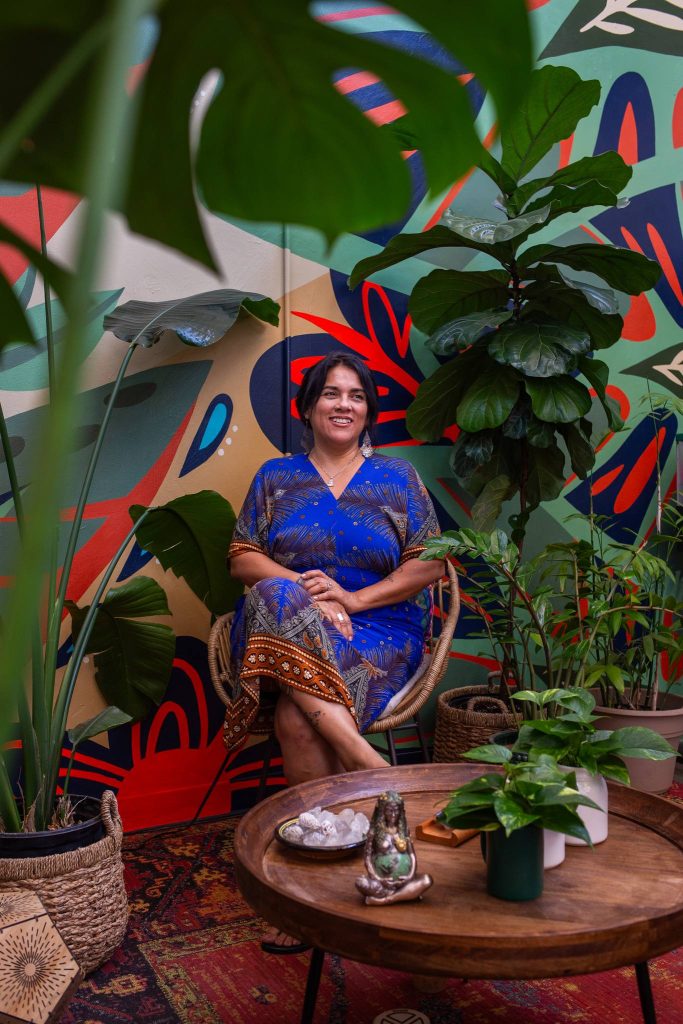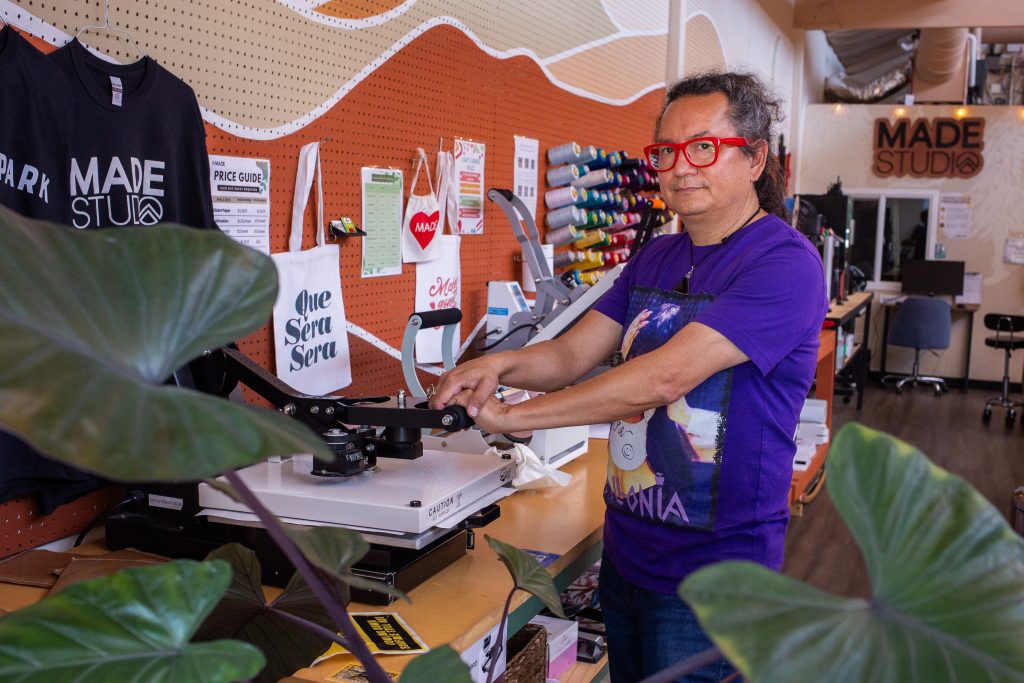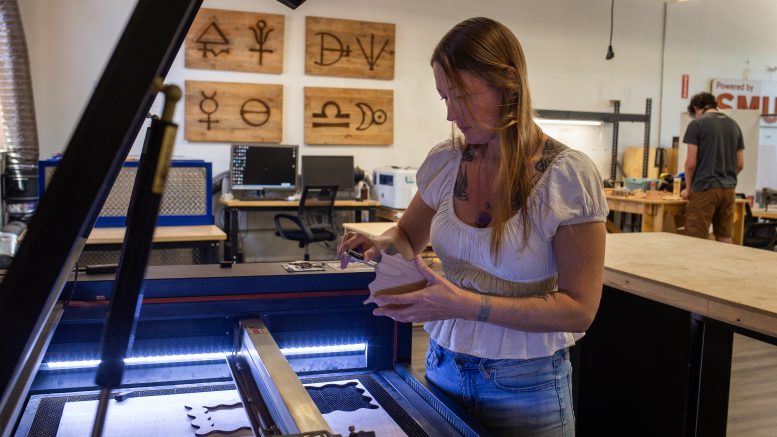By Marie-Elena Schembri
Paige McCafferty, a woodworker and owner of craft business Awkwood Things, became a member at MADE Studio in Sacramento as part of the MAKEHERS cohort in March 2023. McCafferty, who is also a young single mom, applied for the women-owned small business accelerator program after seeing her friend complete it and successfully scale up her business.
McCafferty credits the program with giving her “access to tools to be able to grow my business, to have totally different clients, and making much bigger things. The space here has allowed me to see ways that I could grow that I wouldn’t have seen on my own,” she said.
MADE Studio, owned by HackerLab, is a nonprofit maker space in Oak Park that prioritizes equity and access for women, creators and makers of color . Of the studio’s roughly 90 members, 20 receive a subsidized or free membership. MAKEHERS is fully funded through sponsorships, and in prior years, has offered seed-grant funds to help women start or invest in their businesses.
Gina Lujan, CEO of MADE Studio, began the program in 2022, after launching a rebrand from HackerLab to MADE Studio. Lujan saw a gap in opportunities for small businesses and cottage industry makers in Sacramento. “Sacramento loves high-growth startups and that’s not what these are, so we wanted to help them,” Lujan said.
In addition to shifting the focus to small-business owners and makers, the rebrand aimed to create a more welcoming space for women and people of color, who “did not resonate with HackerLab.”
“As I evolved as a person and started seeing the holes that we were not filling, [that] is when I really started looking at, ‘How can I solve this problem? … How can I make the next iteration? How can I do better?’” Lujan said. Building a new, inviting and accessible space with a team of BIPOC and women creatives was the answer.

According to Lujan, about half of the studio’s current members are women, and MADE has “more people of color than we ever have.” Lujan points out there is no one major demographic among members.
With the rebrand, it was important for Lujan to bring in accessible, easy-to-use studio equipment that appealed to makers like McCafferty, rather than the more industrial focus of the prior HackerLab space. The new equipment requires less time to learn, and some machines can be mastered quickly, rather than requiring several hours of training.
“We have a newer laser cutter. It’s much easier to use now,” Lujan said. “Everybody uses all of the laser cutters, but having some more user-friendly tools, that gives people more equitable access as opposed to something that’s higher entry-level.”
In the studio, members have access to 3D printers, laser cutters, several saws and a lathe, CNC engravers, jewelry-making tools, sublimation printers, sticker printers, embroidery and Cricut machines, banner printers, a product photography setup, podcast studio, workspace for electronics, and computers with software for editing and design. There are also central tables for co-working, 85 different classes a month, and the space hosts a comedy open mic on Monday and Wednesday evenings.
Ruben Reveles, a Chicano “futurist” artist, has been a member for about a year and teaches classes at the studio on the art of sublimation printing, which he uses to print his colorful, psychedelic digital works onto various materials such as slate, metal or canvas.
For Reveles, one of the biggest perks of his membership is the ability to experiment with different printing materials at a lower cost and with a much quicker turnaround time than if he ordered them. “So this has expanded my art as far as to be able to prototype things, be able to go to the next level of — if I want it on canvas, I print it here, so I can see it,” he said.
The studio also offers a creative community for artists like Reveles, who called the studio “a very loving place to be.” For Reveles, the previous iteration of the studio as HackerLab was intimidating.
“Even though I love tech, that’s all I work with, I’m still like, ‘I don’t know anything,” said Reveles, who noted that he is dyslexic and doesn’t know how to code. “Changing the frequency” brought Reveles into MADE studio, which is exactly what Lujan hoped for with the shift in branding.

MADE studio’s mission is “really to get as many people in here that historically have not been able to have access to this space or did not feel comfortable being in a space like this,” according to Lujan.
“That is the mission, is to be able to have a place where people feel safe and they feel welcome and they can do it, that they know that they can do it. … Every day is a testimony when I watch people who otherwise wouldn’t have touched those tools, use those tools and make something,” she said.
This story was funded by the City of Sacramento’s Arts and Creative Economy Journalism Grant to Solving Sacramento. Following our journalism code of ethics and protocols, the city had no editorial influence over this story and no city official reviewed this story before it was published. Our partners include California Groundbreakers, Capital Public Radio, Outword, Russian America Media, Sacramento Business Journal, Sacramento News & Review, Sacramento Observer and Univision 19.


Be the first to comment on "Sacramento’s MADE Studio fosters creative equity and accessibility"